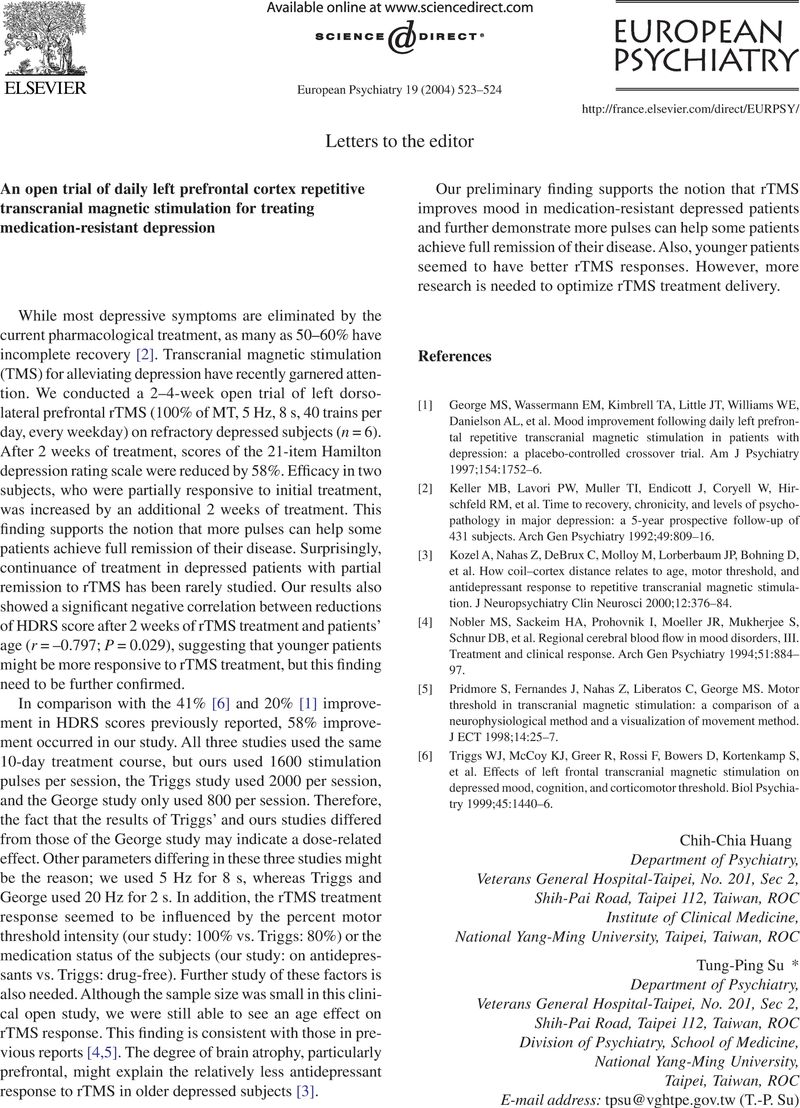Crossref Citations
This article has been cited by the following publications. This list is generated based on data provided by Crossref.
2005.
The Maudsley 2005-2006 Prescribing Guidelines.
p.
135.
Huang, Chih-Chia
Wei, I-Hua
Chou, Yuan-Hwa
and
Su, Tung-Ping
2008.
Effect of age, gender, menopausal status, and ovarian hormonal level on rTMS in treatment-resistant depression.
Psychoneuroendocrinology,
Vol. 33,
Issue. 6,
p.
821.
Lysaker, Paul H
and
Whitney, Kriscinda A
2009.
Obsessive–compulsive symptoms in schizophrenia: prevalence, correlates and treatment.
Expert Review of Neurotherapeutics,
Vol. 9,
Issue. 1,
p.
99.
Shelton, Richard C.
Osuntokun, Olawale
Heinloth, Alexandra N.
and
Corya, Sara A.
2010.
Therapeutic Options for Treatment-Resistant Depression.
CNS Drugs,
Vol. 24,
Issue. 2,
p.
131.
Trevizol, Alisson P.
Downar, Jonathan
Vila-Rodriguez, Fidel
Thorpe, Kevin E.
Daskalakis, Zafiris J.
and
Blumberger, Daniel M.
2020.
Predictors of remission after repetitive transcranial magnetic stimulation for the treatment of major depressive disorder: An analysis from the randomised non-inferiority THREE-D trial.
EClinicalMedicine,
Vol. 22,
Issue. ,
p.
100349.
Sun, Nianyi
He, Yu
Wang, Zhiqiang
Zou, Wenchen
and
Liu, Xueyong
2021.
The effect of repetitive transcranial magnetic stimulation for insomnia: a systematic review and meta-analysis.
Sleep Medicine,
Vol. 77,
Issue. ,
p.
226.




Comments
No Comments have been published for this article.